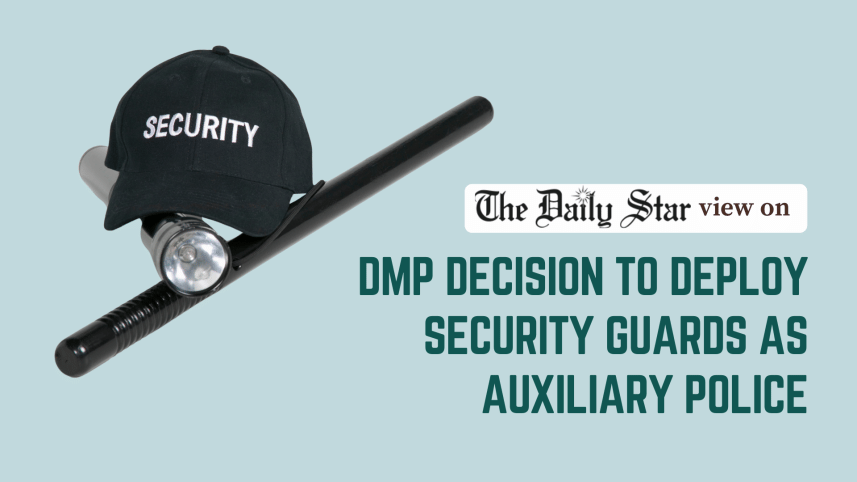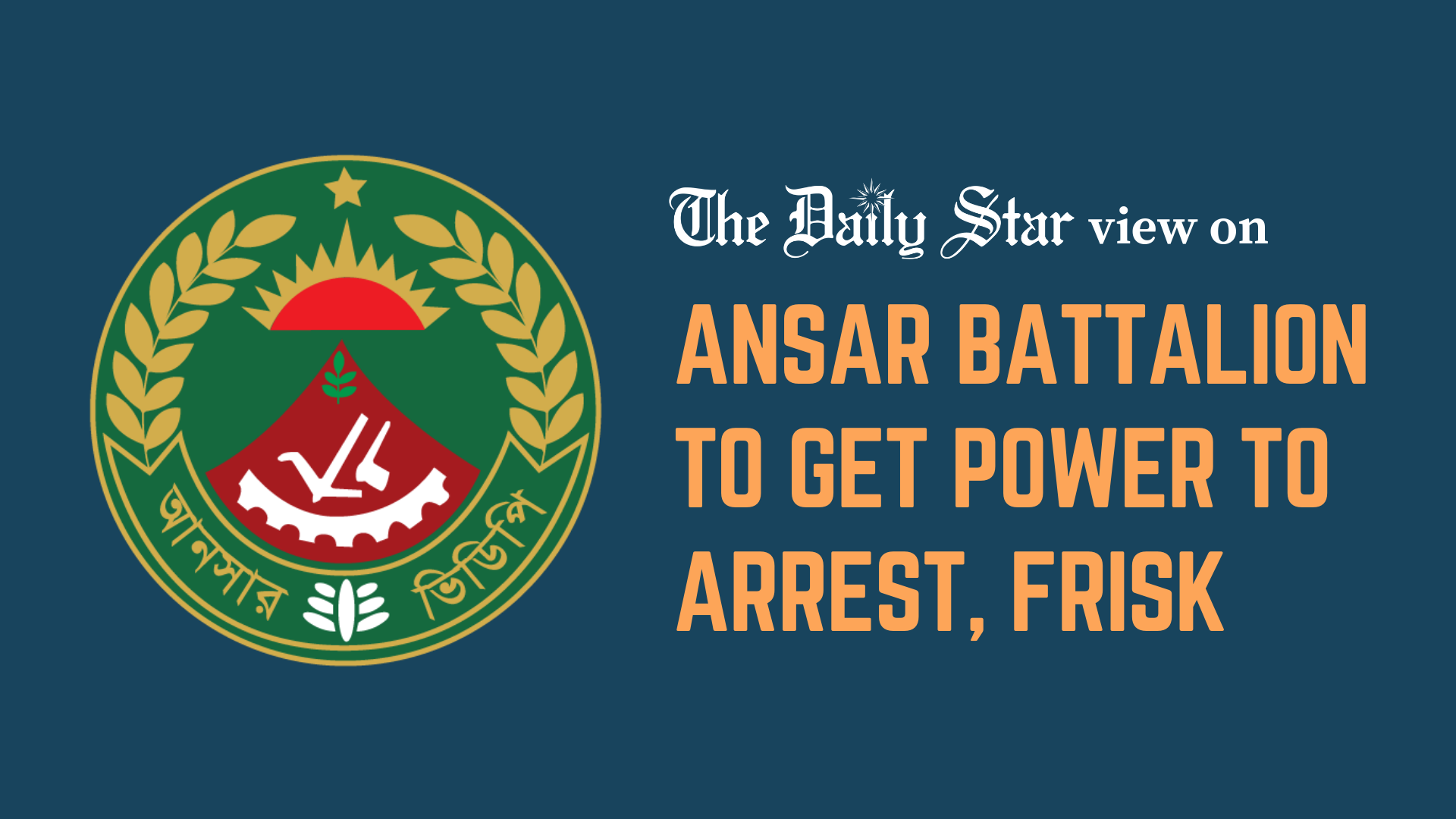A questionable move by DMP

The Dhaka Metropolitan Police's (DMP) decision to empower private security personnel with the power to detain individuals suspected of crimes has raised concerns. While its objective—to bolster security during Ramadan and Eid—seems reasonable, the delegation of such powers to untrained private guards risks creating more problems than it solves. Under this initiative, as revealed by the DMP commissioner recently, guards deployed in shopping malls, residential areas, and markets—potential crime hotspots during festival/holiday seasons—will serve as members of an "Auxiliary Police Force," wearing official bands and having the power to make arrests if necessary. Already, the appointment of around 500 such police assistants has been confirmed.
The move blurs the line between trained law enforcement officers and private security guards, whose primary role is to monitor and report incidents, not to enforce the law. Unlike police officers, private guards do not undergo the same rigorous training, ethical scrutiny or legal oversight. Granting them the authority to arrest people without proper training invites the possibility of abuse. The question is: how will the DMP prevent this scenario, especially when those will be unaccompanied by police?
The question here is not about the legality of the move—which is being taken under the DMP Ordinance, 1976—but rather its security and accountability risks. First of all, the move blurs the line between trained law enforcement officers and private security guards, whose primary role is to monitor and report incidents, not to enforce the law. Unlike police officers, private guards do not undergo the same rigorous training, ethical scrutiny or legal oversight. Granting them the authority to arrest people without proper training invites the possibility of abuse. The question is: how will the DMP prevent this scenario, especially when those will be unaccompanied by police?
The DMP commissioner has stated that auxiliary officers will be "legally protected" like police officers, but does that mean they will also be held to the same accountability standards? If an auxiliary officer makes an unjust arrest or uses excessive force, will they face the same consequences as a regular officer? There's a potential legal grey area that could lead to chaos and further insecurity. We must say that this decision reflects poorly on the DMP's capacity to do its job. The commissioner has cited the limited number of police personnel and the need to grant officers leave for Eid as justifications for the move. While we acknowledge the resource constraints amid increasing street crimes, the answer is not to outsource policing, however temporarily, to private security personnel.
The DMP should be credited for boosting security measures in the capital in recent days. According to its media wing, 667 patrol teams have been deployed and 71 checkpoints have been set up to tackle crimes. While this and other factors have likely stretched the force thin, the decision to delegate police powers to private guards is almost as troubling as the Awami League government's move to grant similar powers to Ansar shortly before the 2024 election. Similar misuse concerns also arose after the interim government granted magistracy powers to commissioned army officers in September. So, instead of hastily delegating such powers, what the DMP should do is focus on strengthening its own capacity.
 For all latest news, follow The Daily Star's Google News channel.
For all latest news, follow The Daily Star's Google News channel. 

Comments